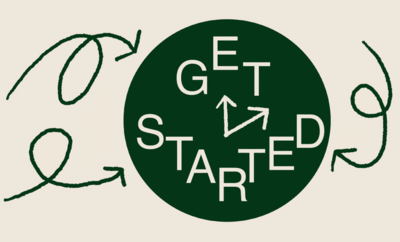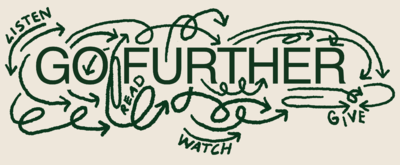Did you know there is more than one way to feel exhausted? (Of course you did! You’re alive in 2021!) And for each, rest looks different. If you’re physically worn out, a long, soothing bath might be in order. If you’re mentally drained, meditation, or just some quality time with your couch, could give your brain cells their second wind. Each type of burnout—creative, spiritual, emotional—is unique, and each requires its own remedy. So it’s important to pay attention not just to when you feel depleted but how, and take breaks accordingly.
Today, we’ll focus on rest in its most necessary, yet arguably endangered, form: sleep. Sleep is the bedrock of wellness—without it, all our other efforts to live a healthy and happy life are built on shaky ground. As studies show, when we don’t get enough sleep at night, we are at an increased risk for depression, type 2 diabetes, cardiovascular disease, obesity, and even the common cold. “Pretty much any illness, whether mental or physical, is influenced by sleep and sleep deprivation,” says Dr. Helen Burgess, co-director of the University of Michigan’s Sleep and Circadian Research Laboratory.
And yet, an estimated one third of Americans (!) don’t get enough sleep at night. Below, we’ve outlined three simple steps to catching better zzz’s. But before we get started, we ask that you do the following:
1. Rule out insomnia (a separate and potentially serious condition) by answering these four questions.
2. Admit to yourself that sleep isn’t about luxury nor laziness. Your body needs it. End of story.

Everyone has their own internal clock, which regulates sleep, hormones, body temperature, and digestion. Our circadian rhythms are part of this system. They run on 24-hour cycles and are connected to a master timekeeper in the brain.
Are you a night owl? Or the chipperest face on an 8 a.m. Zoom call? This is your chronotype, revealing when you’re naturally inclined to sleep and wake up. While our clock is greatly influenced by genetics, our behaviors can shift it forward or backward, bringing on—or impeding—a good night’s rest.
This internal clock “is like an orchestra,” says Dr. Michael Smolensky, a chronobiologist and professor of biomedical engineering at the University of Texas at Austin. “And you have a conductor who is coordinating all these activities in time. For sleep to occur biologically, you need things to be in gear, in sync.”
But the conductor—our brain’s master clock—can get thrown off tempo by our lifestyle.
“After sunset, think about it: We are the only species that with a flip of the switch, we can automatically change our light exposure,”
Lighting our homes as brightly as possible confuses our clock. It triggers us to be alert and energized at night, and it suppresses the release of melatonin, the hormone our body secretes two or so hours before bedtime to make us drowsy.

Look, we get it: The “autoplay next” function is a cruel temptress. But before the next episode rolls, you may want to hit pause. Binge-viewing is linked to insomnia, fatigue, and poorer sleep. Experts theorize that getting emotionally sucked into back-to-back episodes leads to “cognitive pre-sleep arousal”—aka, a wide-awake brain.
And then, there’s the dreaded blue light from your tech, which may interfere with your circadian clock. A few ways to fight back:
1. Warm your screen. Change the display on your devices to a less-jarring warm yellow. Here’s how to do it on iPhone and Android.
2. Park your phone out of arm’s reach. We know it’s hard to keep your phone out of your room. But an hour before bedtime, stash it away from your bed.
3. Replace your bedside lamp’s fluorescent bulb with one that replicates the warm orange-red colors of a campfire, like an LED tunable light. (Give yourself a personal sunset for a mere $12!)

“You don’t want it frigid, but a cool room tends to be good for sleep,” says Dr. David Neubauer, associate director of the Johns Hopkins Sleep Disorders Center.
The circadian rhythm that regulates temperature helps initiate sleep and wakes you up—your body temperature naturally drops to prepare for slumber, reaching its lowest point about two hours before your natural wake-up time. Then it rises as your body and brain gear up for the day.
The American Academy of Sleep Medicine recommends an optimal sleep temperature of around 68 degrees. Dr. Smolensky also suggests trying a thinner or thicker blanket, because what really matters is the immediate space around your body, the microenvironment between the mattress and covers.
Some low-tech tools may help. A fan not only muffles noise, but it can also circulate air. And taking a shower or bath an hour or two before bedtime is linked with better sleep, according to a study review published in Sleep Medicine Reviews. The warm water helps to raise the body’s core temperature, and stepping out of it brings on a cooling process.

In our productivity-obsessed culture, the need to rest is viewed at best as a sign of weakness and at worst, a moral failing. From an early age, we’re taught that success means waking up early and not closing our eyes until bedtime. In truth, a later wake-up time has been shown to have no bearing on cognitive performance (so long as it’s consistent) while short, midday naps are proven to enhance physical performance and frustration tolerance. If you remember only one thing from this week’s newsletter, we hope it’s that the stigma around rest is unfounded and unhealthy.
And hey, even if the early bird does get the worm, who—we ask you—wants worms?

Take fifteen.
It’s hard to dramatically change your bedtime to meet the goal of seven to eight hours of rest. Instead, each night, just shift it 15 minutes earlier or later. Wake up at roughly the same time. And, yes, that means the weekends, too.
Try the 4-7-8 breath technique.
Integrative medicine doctor Andrew Weil recommends using this 4-7-8 breath technique when your mind is spinning and you’re having trouble falling asleep. First, breathe in deeply through your nose for four seconds; hold for seven seconds then exhale through pursed lips for eight seconds. Why does it work? As Dr. Weil explains on his site, “It lowers heart rate, it lowers blood pressure…it is a very powerful anti-anxiety measure.”
Camp out (or in).
If you’re able, pack your sleeping bag and head for the hills. See how you feel after a weekend away from artificial light (in a small study, campers who were around only natural light fell asleep earlier and rose with the sun’s ascent). Not the camping type? Spend a weekend outside as much as possible; at sunset, dim the lights and try to start the bedtime wind down.

WATCH:
Still convinced you can cheat the sandman? Watch UC Berkeley neuroscientist Matt Walker explain why “sleep is your superpower.”
LISTEN:
The BBC podcast Slow Radio broadcasts ambient sounds from around the world, from heron calls to piano music, to help you nod off.
EXPLORE:
The Nap Ministry promotes rest as a means of resistance to help “deprogram the masses from grind culture.” It pushes back on the idea of rest needing to be “earned,” framing sleep deprivation as a racial and social justice issue.
GIVE:
At Prism, we believe everyone deserves a place of rest that is comfortable and safe. SELAH Neighborhood Homeless Coalition generates community and political support for unhoused people through various initiatives.

Prism Postcards takes the cringe out of wellness. It’s smart, inclusive, and funny. Sign up and get it delivered to your inbox every other week.

